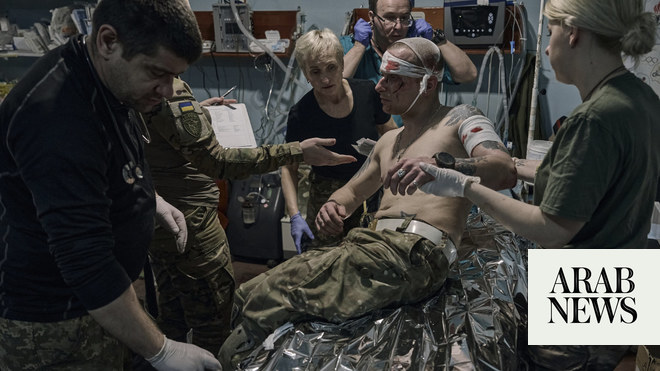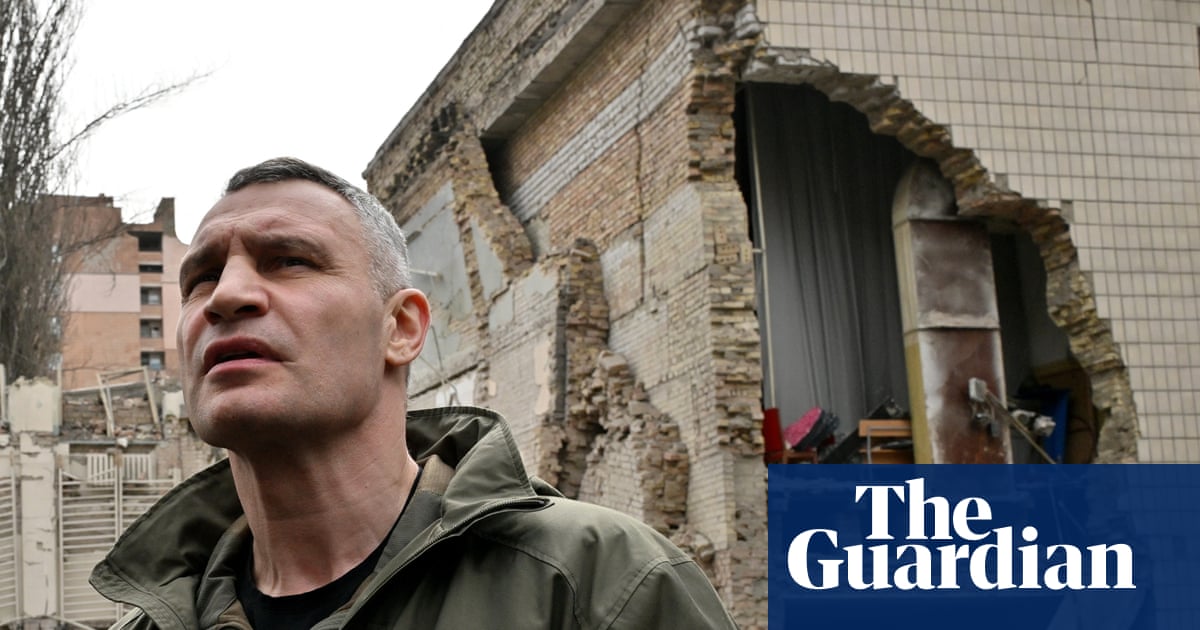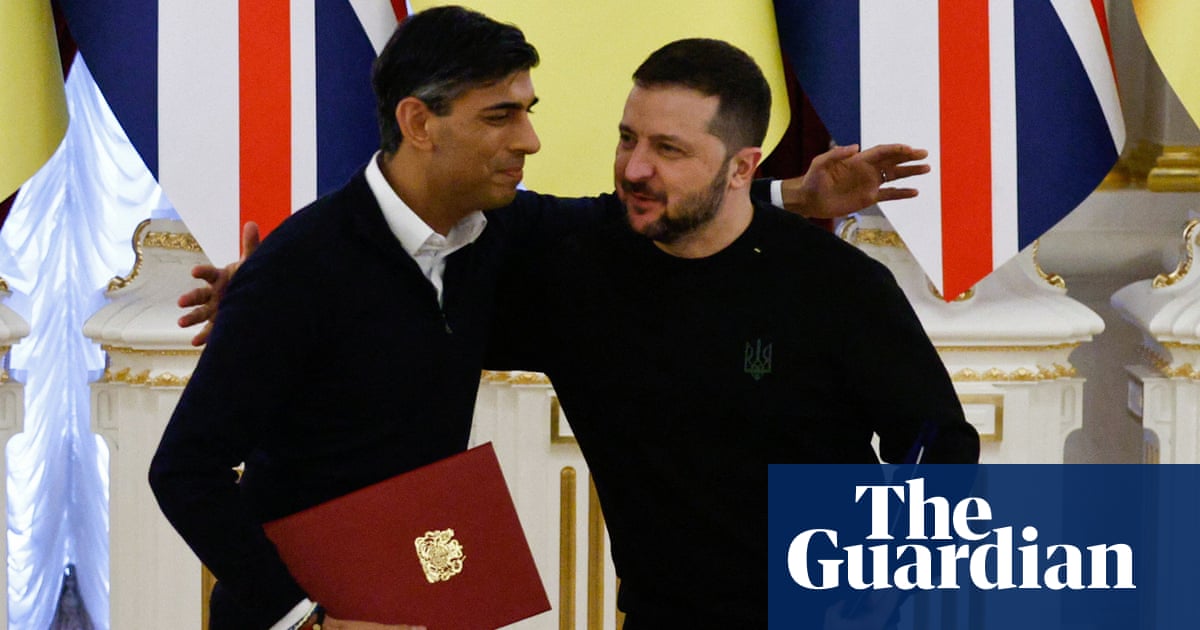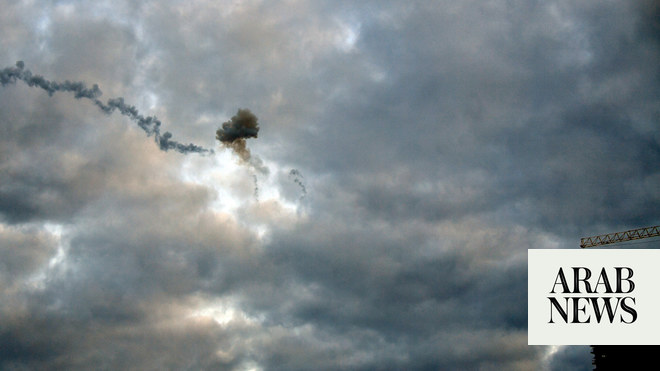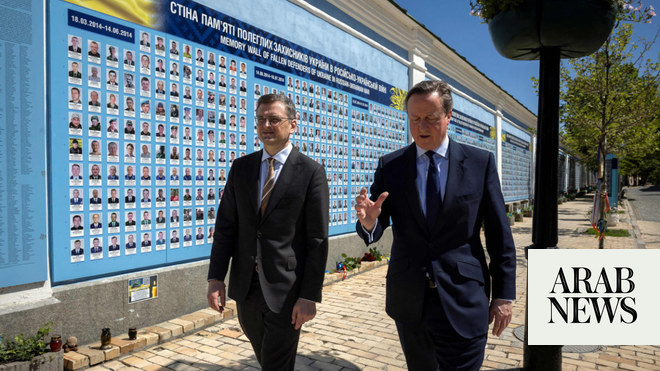
KYIV: NATO allies promised on Tuesday more arms for Kyiv and equipment to help restore Ukrainian power and heat knocked out by Russian missile and drone strikes, as air raid sirens blared across Ukraine for the first time this week.
Ukrainians fled the streets for bomb shelters, although the all-clear later sounded across the country. In the eastern Donetsk region Russian forces pounded Ukrainian targets with artillery, mortar and tank fire.
Foreign ministers from the NATO alliance, including US Secretary of State Antony Blinken, began a two-day meeting in Bucharest, seeking ways both to keep Ukrainians safe and warm and to sustain Kyiv’s military through a coming winter campaign.
“We need air defense, IRIS, Hawks, Patriots, and we need transformers (for our energy needs),” Ukrainian Foreign Minister Dmytro Kuleba told reporters on the sidelines of the NATO meeting, enumerating various Western air defense systems.
“In a nutshell: Patriots and transformers are what Ukraine needs the most.”
Former Russian president Dmitry Medvedev warned NATO against providing Ukraine with Patriots and denounced the Atlantic alliance as a “criminal entity” for delivering arms to what he called “Ukrainian fanatics.”
NATO Secretary-General Jens Stoltenberg said Russian President Vladimir Putin was “trying to use winter as a weapon of war” as Moscow’s forces lose ground on the battlefield.
In a statement, NATO ministers condemned Russia’s “persistent and unconscionable attacks on Ukrainian civilian and energy infrastructure” and confirmed a 2008 decision that Ukraine will eventually join the alliance. But it announced no concrete steps or timetable that would bring it closer to NATO.
US and European officials said ministers would focus in their talks on non-lethal aid such as fuel, medical supplies and winter equipment, as well as on military assistance. Washington said it would provide $53 million to buy power grid equipment.
The foreign minister of Lithuania, Gabrielius Landsbergis, urged his NATO colleagues to take the political decision to send modern battle tanks to Ukraine to give them a military edge against Russian forces. Western powers have been reluctant to go down that road for fear of stoking direct conflict with Russia.
ACCUMULATING DAMAGE
Russia has been carrying out huge attacks on Ukraine’s electricity transmission and heating infrastructure roughly weekly since October, in what Kyiv and its allies say is a deliberate campaign to harm civilians, a war crime.Moscow says hurting civilians is not its aim but that their suffering will end only if Kyiv accepts its demands, which it has not spelled out. Although Kyiv says it shoots down most of the incoming missiles, the damage has been accumulating and the impact growing more severe with each strike.
A senior US military official said on Tuesday Russia was firing unarmed cruise missiles that were designed to carry nuclear warheads at targets in Ukraine to try to deplete Kyiv’s stocks of air defenses.
The worst barrage so far was on Nov. 23, leaving millions of Ukrainians in cold and darkness. President Volodymyr Zelensky told Ukrainians at the start of this week to expect another soon that would be at least as damaging.
There are no political talks to end the war. Moscow has annexed Ukrainian territory which it says it will never relinquish; Ukraine says it will fight until it recovers all occupied land.
Kyiv said it wants weapons to help it end the war — by winning it.
“No eloquent speech will say more than concrete action. ‘Patriot’, ‘F-16’, or ‘Leopard’ for Ukraine,” tweeted presidential adviser Mykhailo Podolyak, referring to US anti-aircraft missiles and fighter jets, and German tanks.
’RISKS ARE GROWING’Russia called off nuclear talks with the United States this week at the last minute. Moscow said it had “no choice” but to cancel the talks, aimed at resuming inspections under an arms control treaty, because Washington refused to address its wider concerns about strategic stability.
Russian news agencies quoted Deputy Foreign Minister Sergei Ryabkov as warning Washington of unspecified risks because of its support for Kyiv against what Russia calls a “special military operation” to disarm its neighbor.
“We are sending signals to the Americans that their line of escalation and ever deeper involvement in this conflict is fraught with dire consequences. The risks are growing,” Ryabkov was quoted as saying.
In Kyiv, snow fell and temperatures were hovering around freezing as millions in and around the capital struggled to heat their homes. After a week of trying to restore electricity from the last attacks, national grid operator Ukrenergo said the system was still suffering a 30 percent shortfall of needed power.
Ukraine’s military General Staff said on Tuesday evening Russian forces in the Donetsk region were continuing to focus their efforts on taking the towns of Bakhmut and Avdiivka. A Russian missile strike on Lyman killed one person and injured three others, it said.
Ukrainian aircraft carried out nine strikes targeting Russian servicemen and equipment, notably in the southern central Zaporizhzhia region, the General Staff said.
In the southern Kherson and Kriviy Rih regions, it added, Russian forces are consolidating their defenses and keeping up artillery attacks, including on the city of Kherson which Ukraine recently recaptured.
Reuters could not independently verify the battlefield reports.
Kherson regional governor Yaroslav Yanushevych said electricity had been restored to 50 percent of Kherson city after heavy Russian bombardment.
Both sides will have to keep troops supplied and healthy in cold, wet trenches for the first long winter of the war, a bigger challenge for the Russians as an invading force with longer and more vulnerable supply lines.




